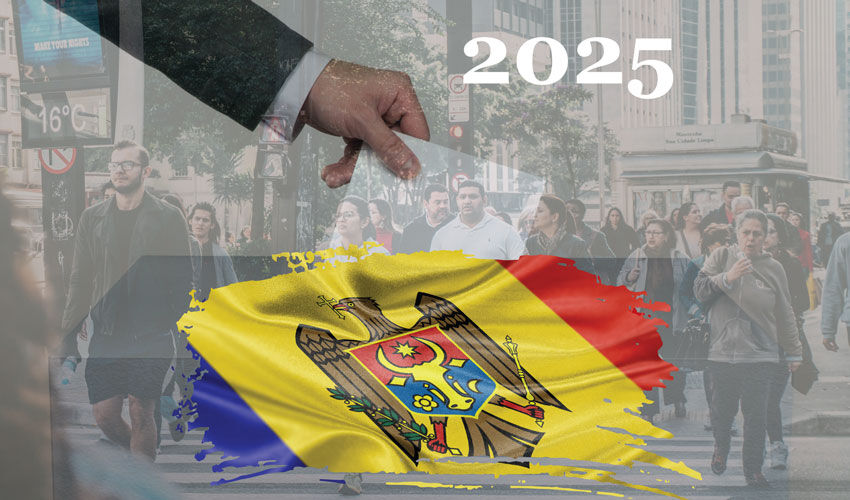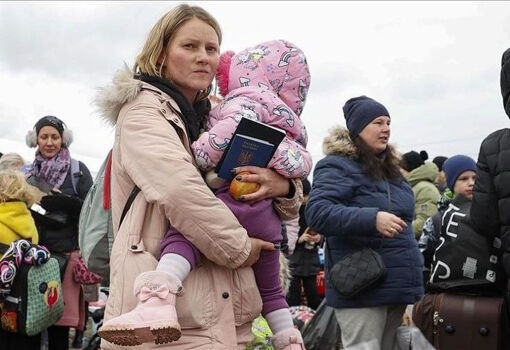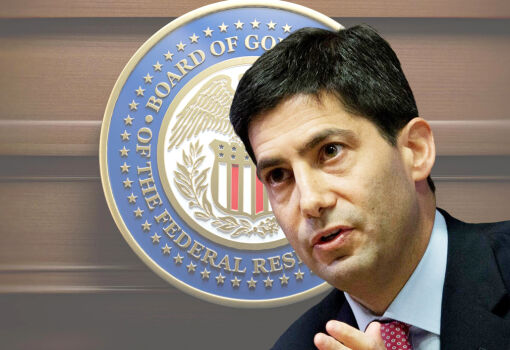
The ruling Action and Solidarity (PAS) party seeks an absolute majority in the new parliament as well, to avoid having to compromise. For them, coalition means losing control over the country’s legislative and general agenda and, crucially, the appointees in the state structures. The phrase of a waitress from an old Soviet movie comes to mind: “I worked so hard to get this position that I don’t want to remember it”. The big question now is whether they will have enough popular support to form a government on their own. Many opposition parties have already announced that they will not cooperate with them.
If the opposition forces win, it is possible that the formation of the Cabinet will be blocked. According to former Prime Minister Ion Sturza, President Maia Sandu will not approve a government with even “minimal sympathy for Russia.” “Let’s tell people honestly. Maia Sandu, as president and as a person with views and character, will never accept – in her capacity as president – a government in Chisinau not only pro-Russian, but at least with a minimum sympathy for Russia,” he said in an interview.
The latest poll conducted by Date Inteligente SRL (iData), one of the sociological companies authorized by the CEC, showed that two parties and two blocs could enter parliament: PAS, Patriotic Electoral Bloc, Bloc Alternative and Our Party.
The parties belonging to the Patriotic Bloc – PSRM, PCRM, Inima Moldovei and Future of Moldova – signed a pact not to form a governing coalition with PAS after the parliamentary elections. And invited other parties and electoral blocs to “join the commitment to contribute to the removal of the PAS party from the levers of governing the country”. Iryna Vlach, in particular, made such an appeal to “Our Party” and the “Alternative” bloc.
On the same day, the chairman of Our Party, Renato Usatii, replied that he would not form an alliance “neither with PAS, nor with the bloc “Alien Wedding”. The only ally of Our Party is the people of Moldova”. He said that the party would sign a Public Commitment Agreement with citizens and made public the relevant document. Renato Usatii often says that the party will have “platinum votes” in the new parliament.
The next day, Ion Ceban also spoke out on behalf of Alternativa: “The Alternative bloc has its own agenda. The only alliance that the Alternative bloc will make will be fully in line with our principles of politics in Moldova. And it will mean an alliance with the people. I repeat, we have our own agenda, and we will negotiate exclusively with those who want to implement this agenda.” He did not answer the journalists’ qualifying questions. At the same time, he repeated that “the only way of Moldova’s development is the way of European integration”.
Of course, it is important how the political forces that will not make it to the parliament will behave. As for independent candidates, to pass the threshold, they need to get at least 30,000 votes or 2%. Independent candidate Olesya Stamate does not rule out her participation in the coalition, provided it is “professional, competent and pro-European”: “First of all, it is very important that the electoral process is correct, transparent and free, so that the will of citizens is reflected in the results announced at the end of the voting day. I hope that this will be the case. Already depending on the citizens’ vote, we will see what kind of coalitions will be in place to govern the country. Obviously, it should be professional, competent and pro-European. I am ready to participate in the act of governing if it is in the interest of citizens.”
Logos Press asked experts to comment on the likely scenarios related to early parliamentary elections in case of failure to form a government. Their opinions range from early elections in the event of a political crisis to a constitutional majority for PAS.
Early elections cannot be ruled out
Political scientist Corneliu Ciurea named three possible scenarios: “The first one is anti-constitutional. Influencers defending the government often talk about it. It is Maya Sandu blocking the creation of a parliamentary majority in case the opposition wins and vetoing the creation of the government. And the Constitutional Court at the same time refuses to “block” Maia Sandu. The second scenario is a stalemate. Four or five parties and blocs will get a certain number of mandates, but will not want to unite in a coalition, to group together to create a parliamentary majority, and this will inevitably lead to early elections. The third scenario – magical, conspiracy scenario – is the return of Plahotniuc and his ability to turn the Moldovan political scene in his favor, thus somehow organizing early elections to get into parliament. Of all these scenarios, the most likely one being talked about at the moment is the anti-constitutional scenario, given PAS’s ability to break the rules of the game. But at the same time, there is no way out of this scenario, because early elections may not produce the desired result. Therefore, in case there are early elections, the most useful, let’s say, scenario for Moldova would be the third one, which would add new players and create new coalitions in the Parliament”.
Former Deputy Prime Minister Alexandru Flencia does not rule out the possibility of early elections and names possible timeframes: “The scenario of dissolution of the newly elected parliament and early elections cannot be ruled out. Especially considering the experience of 2021, when the government could not be formed with a candidate and the parliament was dissolved. The time frame could range from a few months to six months or a year. At the same time, no one can even approximately predict the results of the elections. Yes, there are certain polls, but the practice, including the last presidential elections in Romania, shows that the results are often very different from the forecasts. There are too many scenarios in which the parliament could be dissolved, so the possibility of early elections should not be dismissed”.
Diaspora factor
But political analyst Victor Gureu is sure that there will be no early parliamentary elections and that PAS will have “not just a majority, but a constitutional majority”. Because “the opposition is predictable and does not create anything creative, nothing consistent”, while the authorities – on the contrary, have mobilized.
“The parliamentary elections on September 28, 2025 will be a real success for President Maia Sandu and… the Moldovan diaspora! Yes, yes! Although they are not electoral competitors, they are the key factors in the current election campaign,” Gureu believes. – First of all, because Maia Sandu managed to brilliantly use the external political factor to cover the gaps of the “PAS government”. The effective use of the external factor, with the visits to Moldova of key figures from Brussels, as well as leaders of the highest rank on Independence Day, has raised the morale of citizens to an unimaginable level. The mobilization is felt in all directions: civil society, media, culture, professional fields and, of course, the diaspora! All these actions have come as a shock to the political opposition, and the bar is quite high. The information flow directed at citizens is enormous. The electoral propaganda includes absolutely all components of society, including the church, fugitive oligarchs, people with criminal backgrounds and interest groups trying to expand their field of maneuver. But the authorities have drawn conclusions from the electoral campaign in the Romanian presidential election, and are now trying to minimize the influence of negative factors. The diaspora is mobilized, exemplarily by all electoral competitors, however, traditionally, by about 80% it votes “for Maia Sandu”. The surprise could be very big and I think the shock for the opposition will be that Maia Sandu will get not just a comfortable parliamentary majority, but… even a constitutional majority!”.
Distrust in power and uncertainty
Jan Lisnevsky, director of political research and consulting company Intellect Group, also considers the scenario of early parliamentary elections unlikely, although for different reasons. “At this stage, the scenario of early elections remains unlikely, but it cannot be completely ruled out. The ruling PAS party has managed to create a strategic shield through external support, visits by European leaders, mobilization of the diaspora and integration of key social groups into the election campaign. All this has reinforced the sense of inevitability of their victory. However, according to Intellect Group’s latest research, about 37.2% of voters have not yet decided on their choice, and the level of trust in the government is only 16%. Additionally, 57% of citizens believe that the country is moving in the wrong direction, and only 46% fully support the course of European integration, while 35% are skeptical. This means that the electoral field remains psychologically unstable and public sentiment remains vulnerable to sudden changes. In such conditions, any political, economic or social turbulence can become a trigger for discussions about early elections.”
“The psychological factor is also important here: a significant part of society lives in a state of uncertainty and low trust in institutions. According to our models for August 2025, more than 45% of citizens are stressed and anxious because of political instability. The higher the level of uncertainty, the higher the likelihood of mass reactivity – people change positions more quickly and the political system becomes less predictable. Therefore, although the basic scenario remains the same – parliamentary elections will be held on September 28, 2025 – I would not completely rule out the option of early elections if a systemic crisis or a new split among the elites emerges,” Lisnevsky said.
In his opinion, “now everything depends not so much on the opposition, which remains fragmented, weak and unsystematic, as on the dynamics of public sentiment and the psychological readiness of society to respond to crises. In this sense, the situation looks stable on the surface, but fragile inside.
External influence
Formally, the country has all the prerequisites for the parliament to serve its full mandate after September 28. However, the lack of clear coalition prospects and the high proportion of undecided voters make these elections one of the most unpredictable electoral cycles of recent years. And, according to political commentator Viktor Nikitush, external factors have a big impact on this year’s parliamentary elections: “This year’s parliamentary elections are modeled not only by internal factors. There are also external ones that will influence the outcome of the electoral process – the war in Ukraine is the most important of them. At this stage, at the beginning of the election campaign, we cannot know how the external factors will develop. Therefore, it is too early to talk about post-election scenarios until we know the result of the parliamentary elections”.
Political scientist Ihor Botsan, director of the Association for Democracy through Participation (ADEPT), emphasizes that the war in Ukraine remains the key factor: “In my opinion, it is true that no political force will get an absolute majority in parliament to form a government. I think the negotiations on forming a ruling coalition will drag on for a month or even longer. The tipping of the scales towards a pro-European or pro-Russian majority will be situational. It will depend on the events on the battlefield in Ukraine, on the behavior and determination of the world powers – the US, EU, China – to put an end to the war,” Igor Botsan shared with Logos Press. He believes that these circumstances will determine the decision whether to support PAS or the Patriotic Bloc, taking into account the prospects of keeping Moldova “afloat” and the prospects of development in the near and medium term future.
According to Igor Botsan, the probability of immediate early elections is not high – the uncertainty for the centrist formations will be too great. The lack of financial resources for a new campaign against the backdrop of the electorate’s apathy will make the adventure with new early elections extremely risky.
The election campaign for the 28 September parliamentary elections started on 29 August. The CEC has registered 21 electoral contestants to date:
- Action and Solidarity Party (PAS);
- Party “Democracy at Home” (PPDA);
- “Patriotic Bloc of Socialists, Heart and Future of Moldova”.
- Party “Coalition for Unity and Welfare” (CUB);
- “Alliance of Liberals and Democrats for Europe” party (ALDE),
- National Moldovan Party;
- Bloc “Alternative”;
- European Social Democratic Party (PSDE);
- Bloc “Together”;
- Respect Moldova Movement party;
- Independent candidate – Andrei Nastase;
- Independent candidate – Olesia Stamate;
- Party “League of Cities and Communities” (LOC);
- “Alliance for the Unification of Romanians” (AUR);
- Party – “Alliance Moldavane”;
- Liberal Party;
- Party – “Christian-Social Union of Moldova”;
- Independent candidate – Victoria Sanduta;
- “National Unity Bloc”;
- Independent candidate – Tatiana Cretu;
- “Our Party”.

